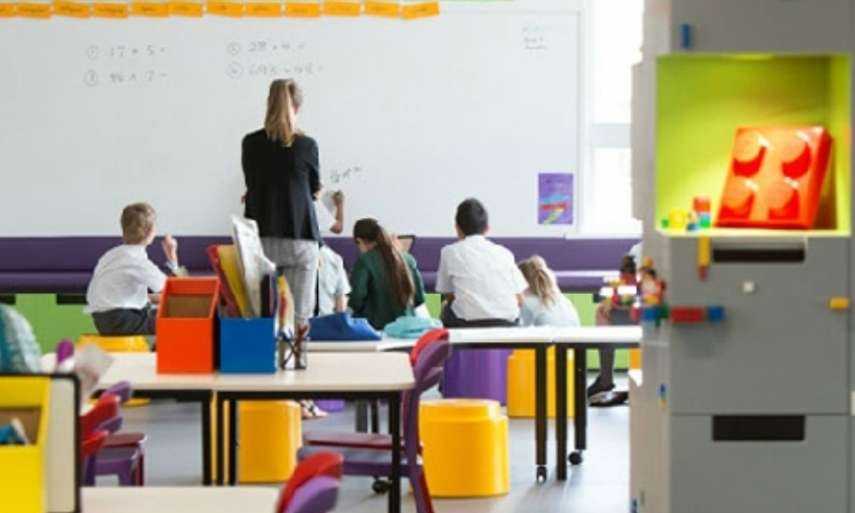Educators are embarking on a two year journey to evaluate fresh approaches through school-based research and share effective practice across sectors.
Five schools have been chosen to take part in the inaugural Association of Independent Schools of New South Wales (AISNSW) Education Research Project.
Independent schools across the state were invited to apply. They will receive up to $150 000 each in funding, some of which can be used to bring in outside specialist mentors.
Darryl Buchanan is Director, Professional Learning, at AISNSW. He says offering support and services with a strong research and evidence base is a key driver for the association.
‘A central part of our focus, particularly in the professional learning we do with schools, has been about enabling research to influence practice in ways that can achieve improved outcomes,’ Buchanan tells Teacher.
‘We have also been influenced by international and Australian research highlighting the benefits of practitioner research.’
Buchanan says disseminating the research outcomes, not just among independent schools, is an important aspect of the project.
‘[A key feature] is to make the learning and any artefacts that emanate from the projects available widely within the broader education community, and beyond. Whilst this research work is being undertaken by independent schools in New South Wales, the research will be made publicly available so that all schools, teachers and students can benefit.’
The aim is to share project findings through education conferences and professional learning sessions, journal articles, an online platform and presentations at the AIS Symposium.
The initiative kicked off in Term 4 with a Project Development Day involving the five schools. Here’s a snapshot of each project:
Co-teaching in flexible learning spaces: Claremont College
Claremont College, in the eastern suburbs of Sydney, is creating flexible learning spaces across grades K-6. Alongside the change in physical environment there has been a shift in pedagogy, with the implementation of co-teaching.
School leaders believe the increased collaboration has already prompted a positive change in the quality of teaching, and in student thinking and learning. Acting Deputy Principal Peter Scott adds many schools are touring the new facilities to watch teachers in action.
He says Claremont College is regarded as a place of professional learning for others. ‘Given the number of visitors who are keen to observe and learn from our experiences, it has become important that we provide evidence-based information and empirical data that supports the information we provide.
‘Our research project therefore aims to look at the question of whether co-teaching contributes to the improved quality of teaching, and student academic and social outcomes.’
The project team includes school leaders, teaching and learning support staff, the school counsellor and consultant Dr John DeCourcy as a specialist mentor.
Improving curriculum delivery through REAL: Oakhill College
‘Our research project is looking at the influences our REAL - Relevant, Engaged, Active Learning - program has had on teaching and learning at Oakhill College,’ Melissa Carson, Coordinator of Innovative Learning, explains. ‘The catalyst ... was an identified under-performance in academic outcomes, and a strong desire to address and correct this.’
In addition to the education research project, the school's Innovative Learning Team is already exploring the potential of better ICT integration, including moving learning materials into the 'cloud' and making them public, transparent and available. The Year 7 cohort is taking part in a pilot program and its impact on learning outcomes is being monitored.
Under the AIS project, Carson says staff at the Sydney school will be invited to 'renew and revitalise their practice and expectations of students, and come to a more coherent understanding of the processes of our school, so we may become better able to manage its ongoing development and improve its reflexivity in a changing 21st Century context'.
Problem-based learning: St Philip’s Christian College
The research question for educators at St Philip's Christian College in Newcastle is: What is the effectiveness of problem-based learning (PBL) in the development of ... critical thinking, collaboration, and communication among Stage Four students across two schools?
Robyn Horsley, Director of Teaching and Learning (Innovation), says sustainable pedagogical practice that produces exceptional academic results and the development of the transformative skills mentioned above has proved to be ‘both challenging and problematic’.
‘The project will begin with building a vision for the school leadership and relevant Year 8 staff, of the PBL process and its impact on learning,’ Horsley says. This first stage is already complete.
‘In 2015, relevant staff will embark on capacity building for assessing, programming and facilitating the PBL model. Staff will also design instruments to measure the development of transformative skills. Finally, in 2016, Year 8 students and staff will implement an integrated curriculum based on PBL.’
Horsley says analysing data collected during the two year project will enable staff to reflect on current practices and opportunities presented by PBL. ‘Through this we ultimately hope to promote deeper learning and develop transformative skills, to improve student learning and academic results.’
A question of values: St Spyridon, Masada College, and Rouse Hill Anglican College
The project team hopes to identify how values inform and shape responses to the schools’ social and ethical responsibilities for students and the wider community.
All three schools in the cluster are in Sydney, but have diverse faiths and traditions. ‘We hope to enhance understanding of ourselves, enhance understanding of others, and build relationships across cultures, faiths and traditions,’ project leaders tell Teacher.
‘[We will] use a practice based multi-dimensional research approach, as reviewed by Furlong and Oancea (Oxford University Department of Education studies).
‘In addition, this study may give us an opportunity to test the experience in other contexts that academic results are enhanced when schools make values explicit and central to students' learning.’
Teachers, students and parents will all be engaged in the research.
STEM and girls' education: Wenona
Dr Nicole Archard, Dean of Academic Studies at the all-girls Sydney school, hopes this project can offer solutions to improve educational outcomes for girls in STEM (Science, Technology, Engineering and Mathematics), both here in Australia and overseas.
‘There is a significant gender disparity with regard to tertiary education and employment in these fields; however, to address these issues, it is firstly important to look at the primary and secondary educational setting ...,’ Archard explains.
‘The aim of this research is to increase girls’ participation, interest, engagement and ultimately performance in areas of STEM education and, as a consequence, influence the transition of girls into post-school options of study and employment in these fields.’
Educators will investigate student, teacher and parent mindsets with regard to development of girls’ self-concept and self-efficacy in relation to STEM. The school will also run a K-12 STEM program involving curricular and co-curricular experiential learning opportunities.
To find out more about the Education Research Project, click on the link. A second round of Research Projects will be offered to independent schools in NSW in 2015.
Are you carrying out school-based research?
What are you aiming to identify?
How are you collecting evidence?
How will you share the findings?



